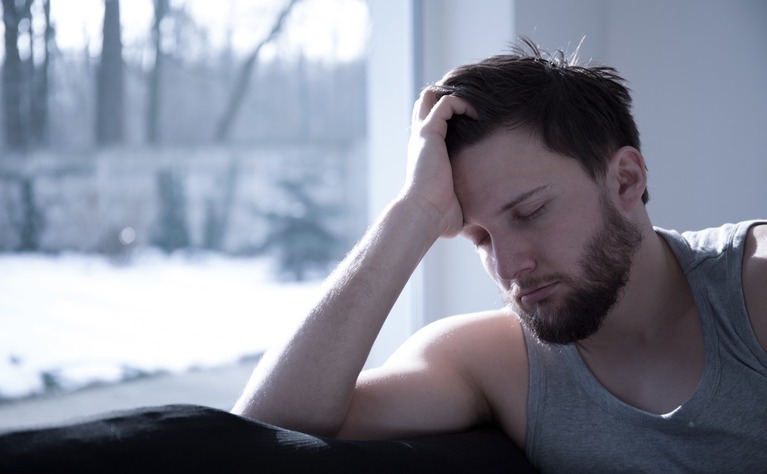Why do we get so fatigued with IBD?
Fatigue is a very common symptom in Crohn’s disease and ulcerative colitis. It is unfortunately also one of the most life affecting symptoms, stopping people from being able to carry out their life as well as they could before IBD.
So how can a condition primarily affecting the digestive system cause such debilitating fatigue?
There are a few things to consider that could be affecting our energy levels:
- Medication
- Inflammation
- Blood loss
- Reduced ability to absorb water and nutrients
- Restricted diet
- Disturbed sleep
Let’s look at these in more detail.
IBD medication
With so many long term management drugs affecting your body’s functions it’s not a surprise some of these will cause fatigue. Unfortunately, unless you’re lucky enough to be able to safely come off these medications, it’s quite difficult to remove this from the problem.
Inflammation
Inflammation is an immune response to help heal and protect damaged cells, usually through injury or infection. The brain detects this inflammation and to help the process makes us want to rest so that the body has a chance to heal. If you have continuous inflammation then unfortunately this will lead to continuous fatigue. The only way to help this will be to reduce or remove the inflammation, hopefully with medication, diet or lifestyle changes.
Blood loss
If our inflammation is severe, there will be some bleeding. This loss of blood can lead to anaemia, which can cause you to feel fatigued.
Restricted diet and a reduced ability to absorb water and nutrients
With IBD, as parts of our digestive system are inflamed, damaged or even removed, it’s not a surprise we might be lacking in some nutrients. With so many foods affecting our symptoms as well, many sufferers have a restricted diet which can lead to further nutritional imbalances.
The key nutrients that have a big effect on fatigue and energy levels are:
What can you do to help?
- Keep hydrated! This doesn’t just mean drink lots of water, your body requires salt to absorb water in the colon and in your cells around the body. With IBD we also don’t absorb salts as well too. It’s best to add a pinch of sea salt to your water. My personal preference is to use sports rehydration tablets, they contain the right mix of salts to hydrate you properly. I use these ‐ SIS Hydro
- Take a vitamin B complex or have vitamin B injections if you have inflammation in your small bowel or have had it removed
- Increase your vitamin D. This can be achieved through a supplement or better still, make your own! Your skin is the biggest producer of vitamin D, it just needs sunlight. There are loads of other benefits to vitamin D too, so next time the sun is out, get some skin out. You only need a few minutes so don’t worry about burning!
- Increase your iron intake ‐ ideally naturally through, meats, fish, nuts, spinach, even dark chocolate! It’s important for generation of red blood cells which transport oxygen around the body. Low iron will cause fatigue
- Avoid sugars ‐ inconsistent blood sugar levels will affect your energy levels. Avoid sugar and simple carbs. Replace with proteins
- Avoid gluten ‐ consider cutting out gluten from your diet, not only can it worsen autoimmune conditions, such as IBD, it can also leave you feeling fatigued
- Reduce carbohydrates ‐ over use of them in your diet isn’t an effective way of getting energy from food. Explore increasing protein, fruit and veg intake. I appreciate this is a big challenge with IBD but you can find many fruit and veg that are “safe” for you
- Avoid caffeine ‐ although the temptation is to use caffeine to “pick you up” the long term withdrawal from caffeine will leave you feeling more tired than before
- Change your pre-sleep routine ‐ avoid stimulation before bed such as TV, smart phones, tablets, food. Try to “wind-down” at least an hour before sleep, prepare yourself for sleep earlier, read a book, listen to chilled music, have a bath or a hot drink (no caffeine!)
- Review your sleep patterns ‐ Sleep is important (you know!) try to keep a consistent pattern, avoid the temptation of lying in at weekends. Also try “natural” awakening such as gradual light or sounds (apps available). Also try to sleep a set number of cycles, divide your sleep into 1.5hr blocks. So get 7.5 or 9 not 8. Again there are apps to wake you when you’re coming out of a cycle. Ideally aim for 9
- Improve your sleep quality ‐ if you share a bed, try sleeping in a spare room or kick your partner onto the sofa! Even if you don’t notice, sharing a bed with someone will disrupt your sleep. Also try to make your room as quiet and dark as possible
- Improve muscle quality ‐ tight muscles make moving more difficult and will make you feel more fatigued. This will be due to lack of movement from the fatigue and also dehydration and low salt levels (see solution above)
- Try to stretch your muscles regularly, this will improve their quality and also releases hormones that awaken the body. Try these 5 minute wake up stretches.
- Also try some light exercise like walking, cycling or swimming on a regular basis. I know it might seem counter productive if you're feeling tired but it will work!
- Explore massage - either from a partner, professionally, self massage or a foam roller. This improves blood flow and removes toxins
- Another fantastic way to relax muscles is by using magnesium (which you are probably low in anyway due to your IBD). The best way to get it into your muscles is through your skin. These are amazing”¦ magnesium bath flakes or magnesium spray.
- Mental state ‐ Your mind is extremely powerful. If you are positive about yourself and how you feel it will make a huge difference. Hopefully the things above can give you the confidence to be positive
- Finally, listen to your body, if you are really tired have some sleep!

Seb Tucknott
Co-founder IBDrelief
Hey, I'm Seb, I've been living with ulcerative colitis since 2008 and I'm super passionate helping people learn how to live their best life with long term conditions.
I've learnt so much from others around me and continue to do so. I love to share what I've learnt along the way too.
